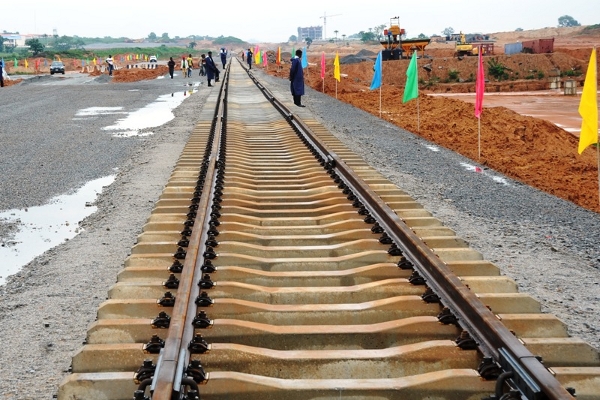Egypt’s Minister of Transport Kamel El-Wazir has said Africa urgently needs to build about 18,000 km of railway lines by 2040 to cover the shortage it is facing in rail transport projects, adding that this requires huge investments.
Addressing the opening session of the World High Speed Rail Conference in Marrakesh, El-Wazir, February 6, 2023, he said Africa suffers a shortage in cross-border rail transport projects, as it has only 5 percent of the world’s total railway lines.
These projects are “a fundamental pillar” for achieving the desired development in the continent, he added.
Ahram Online reports that El-Wazir also noted that the shortage in rail transport projects causes “huge” economic losses and negatively impacts the continent’s competitiveness globally.
“Integration in our African continent cannot be dealt with in isolation from the advancement of the transportation infrastructure network, especially in light of the great boom that the railway sector is witnessing, represented by high-speed railway lines,” the minister added.
In December, Egyptian President Abdel-Fattah El-Sisi said that the African continent needs a fully-fledged international project to develop its infrastructure.
Such a project, whose aim is to develop a comprehensive vision for Africa’s infrastructure, requires mobilising resources and support from major countries and global development experts, El-Sisi said at a meeting with US Secretary of State Antony Blinken on the sidelines of the three-day US-Africa Leaders Summit hosted by US President Joe Biden in Washington DC on 13-15 December.
El-Wazir said the current progress in transportation modes can help facilitate the movement of goods, services and people in a way that provides an environment conducive to achieving higher levels of productive and economic integration.
The Egyptian minister praised the activation of the African Continental Free Trade Area Agreement (AfCFTA) in January 2021 as a milestone on the road to continental integration.
This agreement, he added, is a real opportunity for the African countries to liberalise more than 90 percent of customs tariffs and contribute to achieving a higher growth rate for the African citizen.
The agreement can increase the rate of intra-African trade, which stands currently at no more than 15 percent of the total trade on the continent, whose total population nears 1.2 billion people with a GDP of about $2.5 trillion.
Meanwhile, El-Wazir reviewed the vision of the Egyptian transport ministry, which he said “goes beyond just transportation of passengers and goods to participation in sustainable development for the country.”
Egypt has increased the percentage of green projects in its public budget from 15 percent to 50 percent, he pointed out.
He also cited the Low Carbon Transport for Urban Sustainability (LOTUS) initiative, which Egypt launched during COP27 with the aim of decarbonising the transportation sector.
The minister called for taking the LOTUS initiative as a method of action for developing countries in preparation for establishing serious governance mechanisms to provide serious financing and support.
In February, Egypt assumed the presidency of the steering committee of the New Partnership for Africa’s Development Agency (NEPAD) until 2025.













